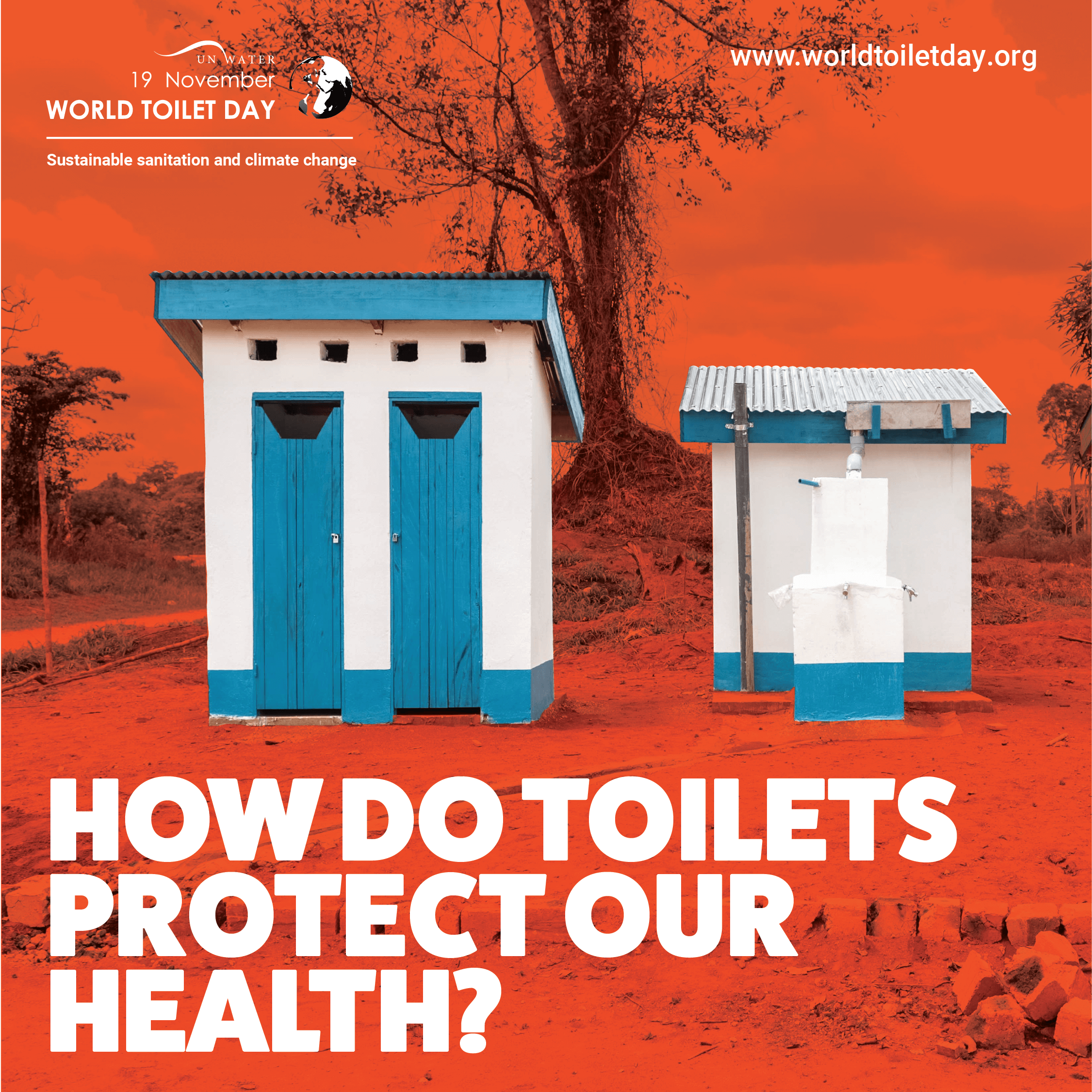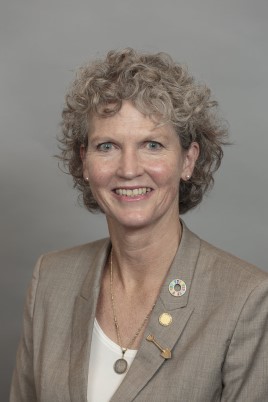November 19 is World Toilet Day, the annual reminder about the importance of sanitation to health, communities, the environment, and the economy. While the day organized by the United Nations (UN) is an opportunity to celebrate how much the toilet has done for civilization, it also serves as a stark reminder that over 4 billion people live without access to safety managed sanitation. Instead they often use unreliable, inadequate toilets or practice open defecation. Untreated human waste gets out into the environment and spreads deadly and chronic diseases.
This year, in addition to the health challenges, the UN is drawing the connection to climate change.
The effects of climate change threaten sanitation systems – from toilets to septic tanks to treatment plants. Floodwater can damage sanitation systems and spread human waste into water supplies, food crops, and people’s homes. Flooding incidents, which are becoming more frequent as climate change worsens, cause public health emergencies and degrade the environment. Everyone must have sustainable sanitation that can withstand climate change and keep communities healthy and functioning.
Addressing these challenges and opportunities is at the core of UN’s Sustainable Development Goal 6, which calls for sustainable, universal access to water and sanitation by the year 2030. Some of the targets associated with SDG 6 include water-reuse, reductions in untreated wastewater, and water-supply resilience, activities which WEF members help address every day.
WEF recently became an official partner of UN-Water, which coordinates the efforts of UN entities and international organizations working on water and sanitation issues, including SDG 6. The designation comes as WEF continues to focus on its role as a global water organization, with members in 78 countries, Member Associations and corresponding associations representing 36 countries, and partnering organizations on every continent (except Antarctica). WEF is honored and excited to become a partner of UN-Water, working alongside the world’s most influential and impactful water organizations.
This designation recognizes the critical work that WEF and its members do to advance global access to water and sanitation. A sampling of some activities by WEF include:
- Collaborating with Nike and ZDHC to create multilingual wastewater training for textile industry.
- Translating Wastewater Treatment Fundamentals 1 into Spanish.
- Bringing the LIFT program to the Caribbean to drive innovation at water utilities.
- Partnering with the U.S. Water Partnership to conduct a three-year exchange program which will pair water utility partners in Vietnam, Thailand, Cambodia, and Malaysia with five water utilities in the U.S.
- Serving as a production partner on Brave Blue World, a documentary film on the opportunity to create a sustainable water future that is available on Netflix in 27 languages.
- Holding a 24 Hours of Water before WEFTEC Connect to showcase the activities of many international partners.
Through these efforts and many more, along with the daily work of WEF members, there is optimism that at some point in the future World Toilet Day will only be a celebration of the progress that sanitation brings to our society and planet.



 Lynn Broaddus, Ph.D, M.B.A. is the 2020-2021 president of the Water Environment Federation (WEF), an international organization of water quality professionals headquartered in Alexandria, Va.
Lynn Broaddus, Ph.D, M.B.A. is the 2020-2021 president of the Water Environment Federation (WEF), an international organization of water quality professionals headquartered in Alexandria, Va.